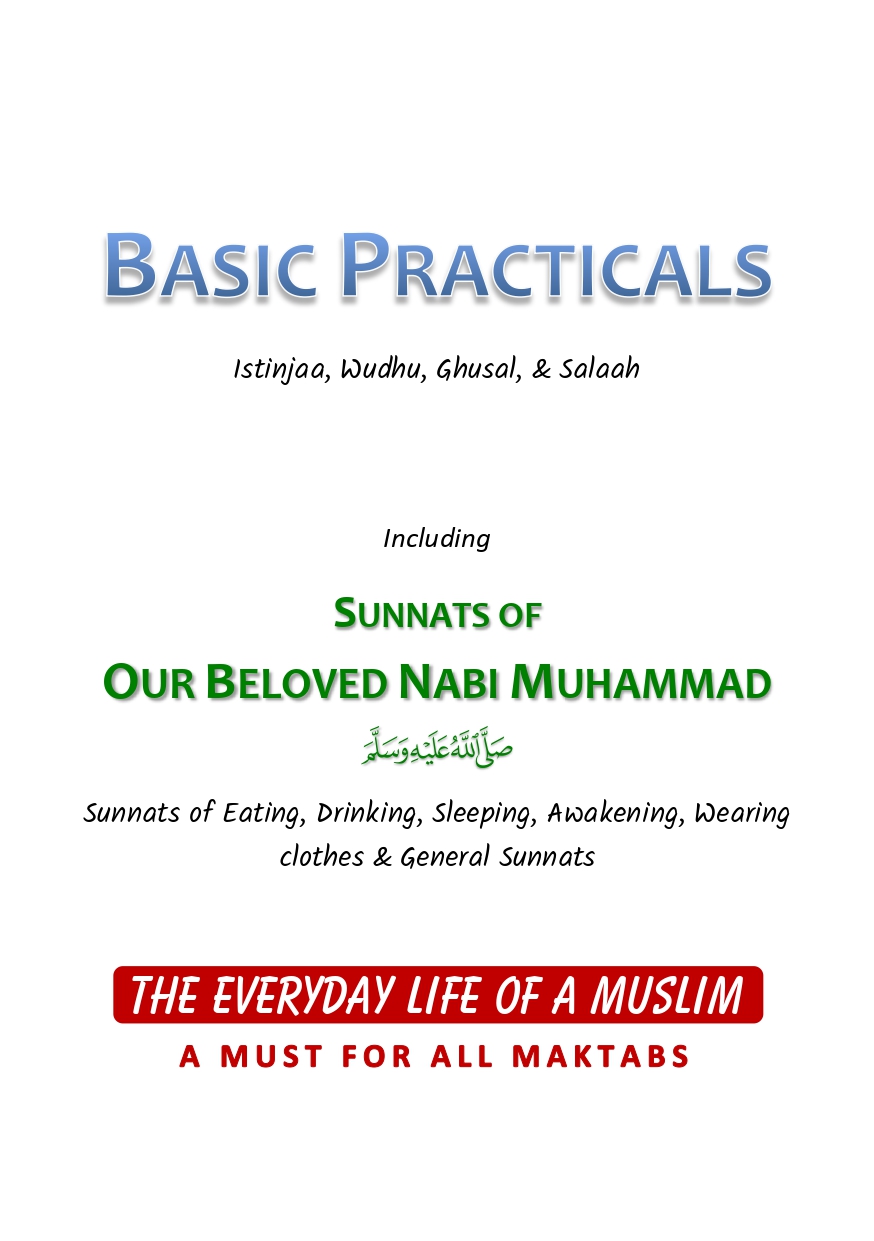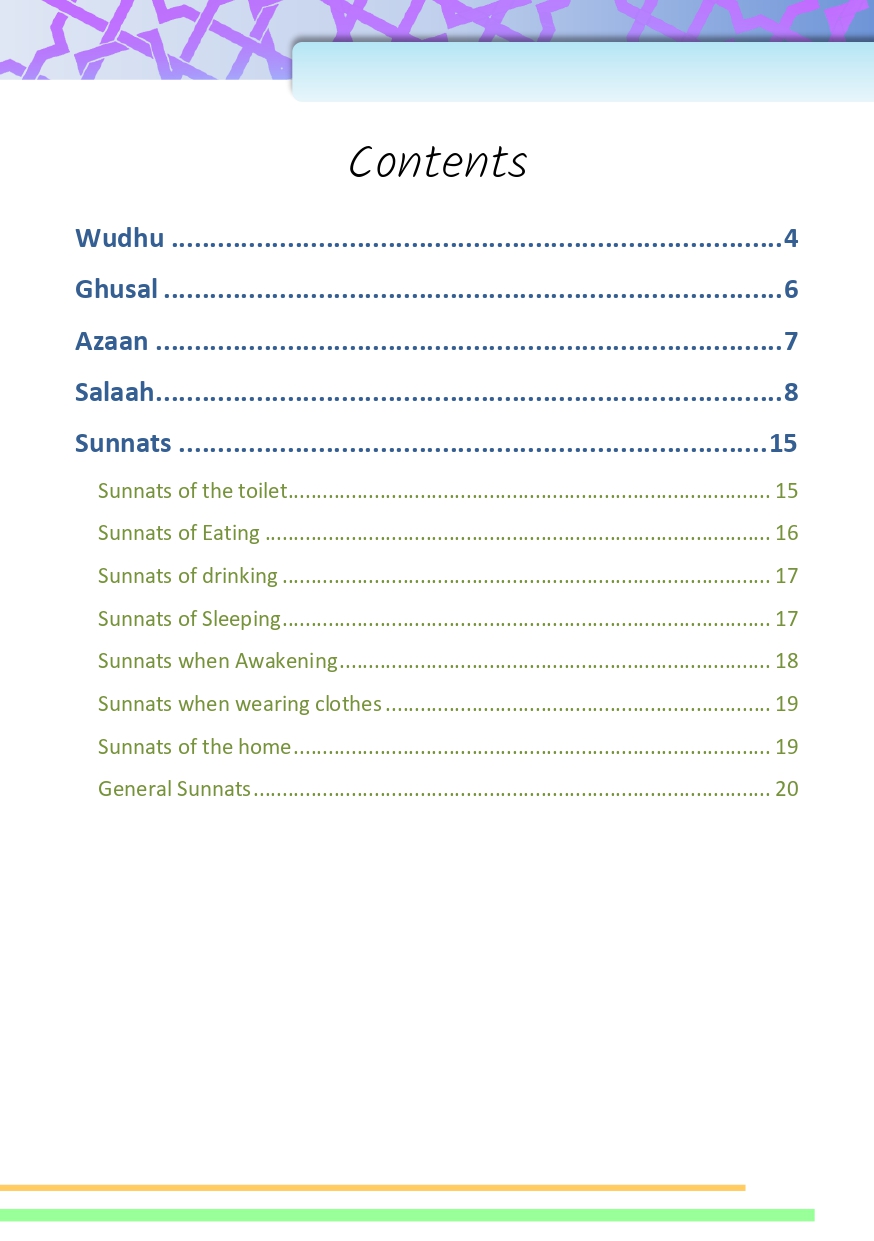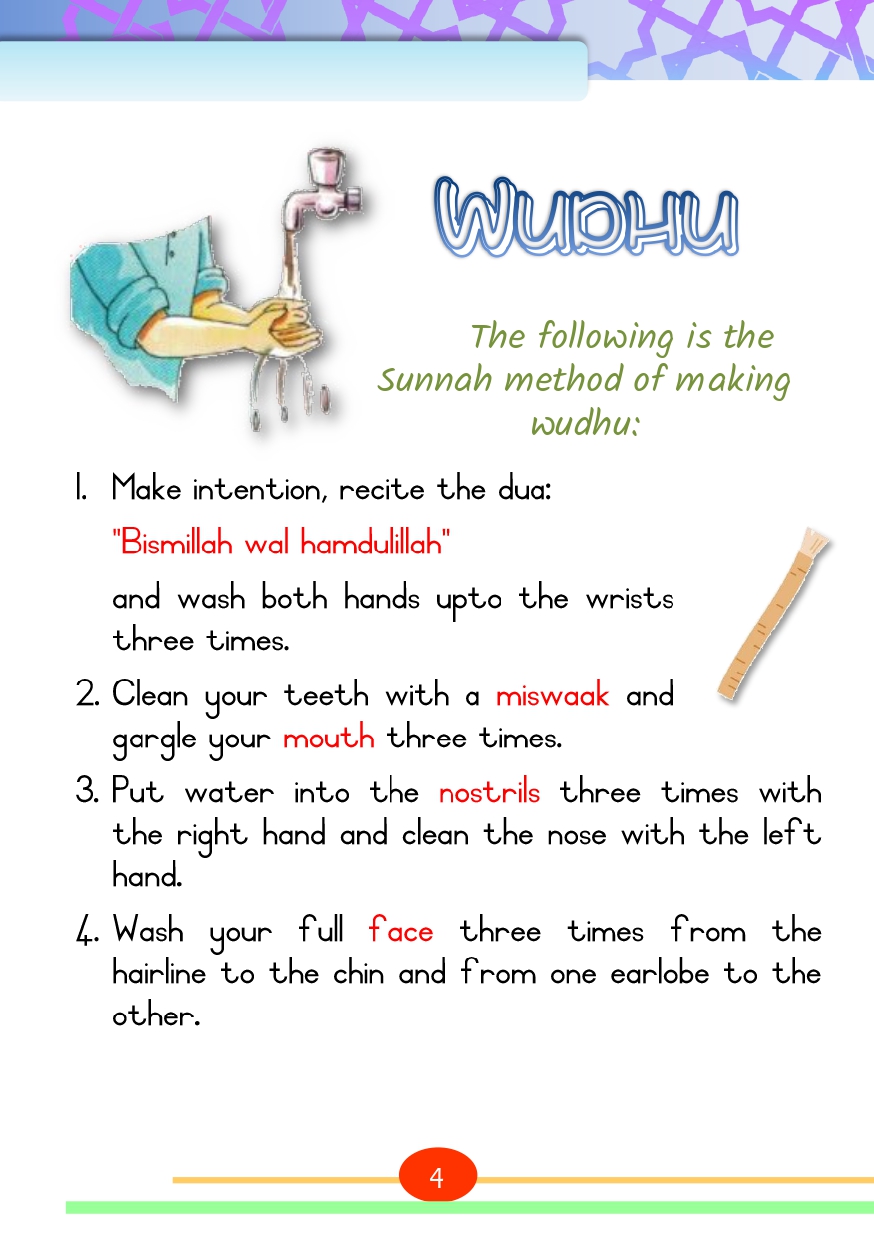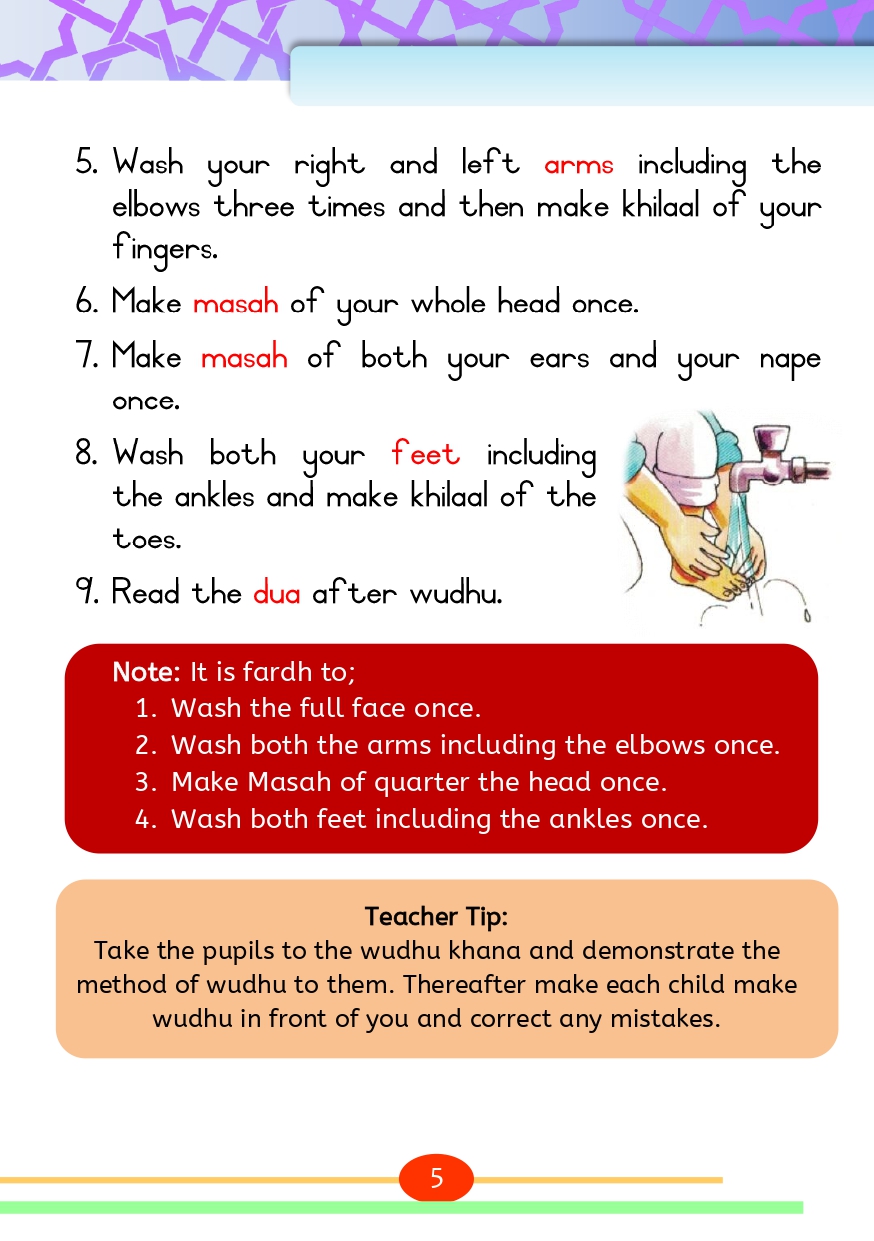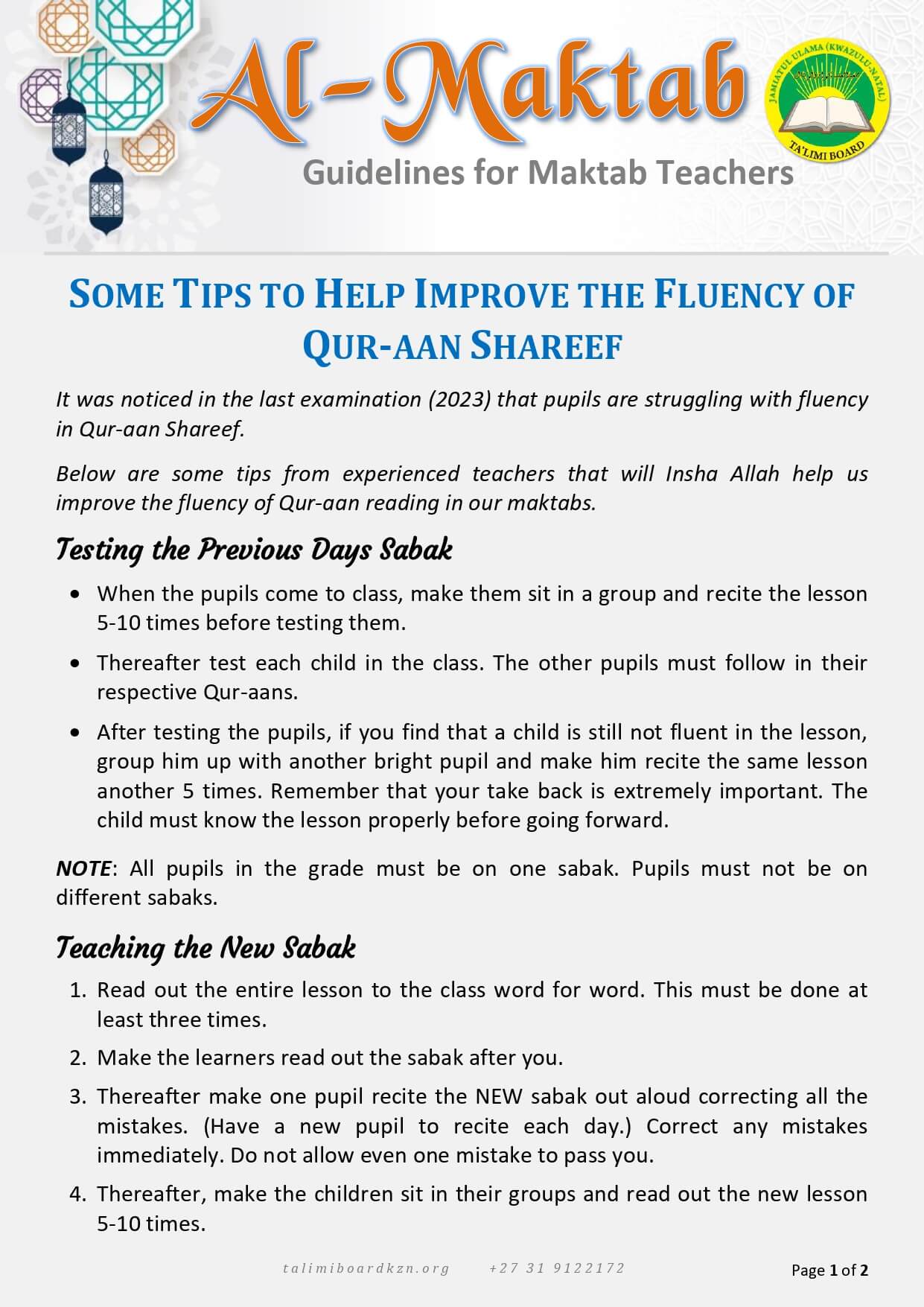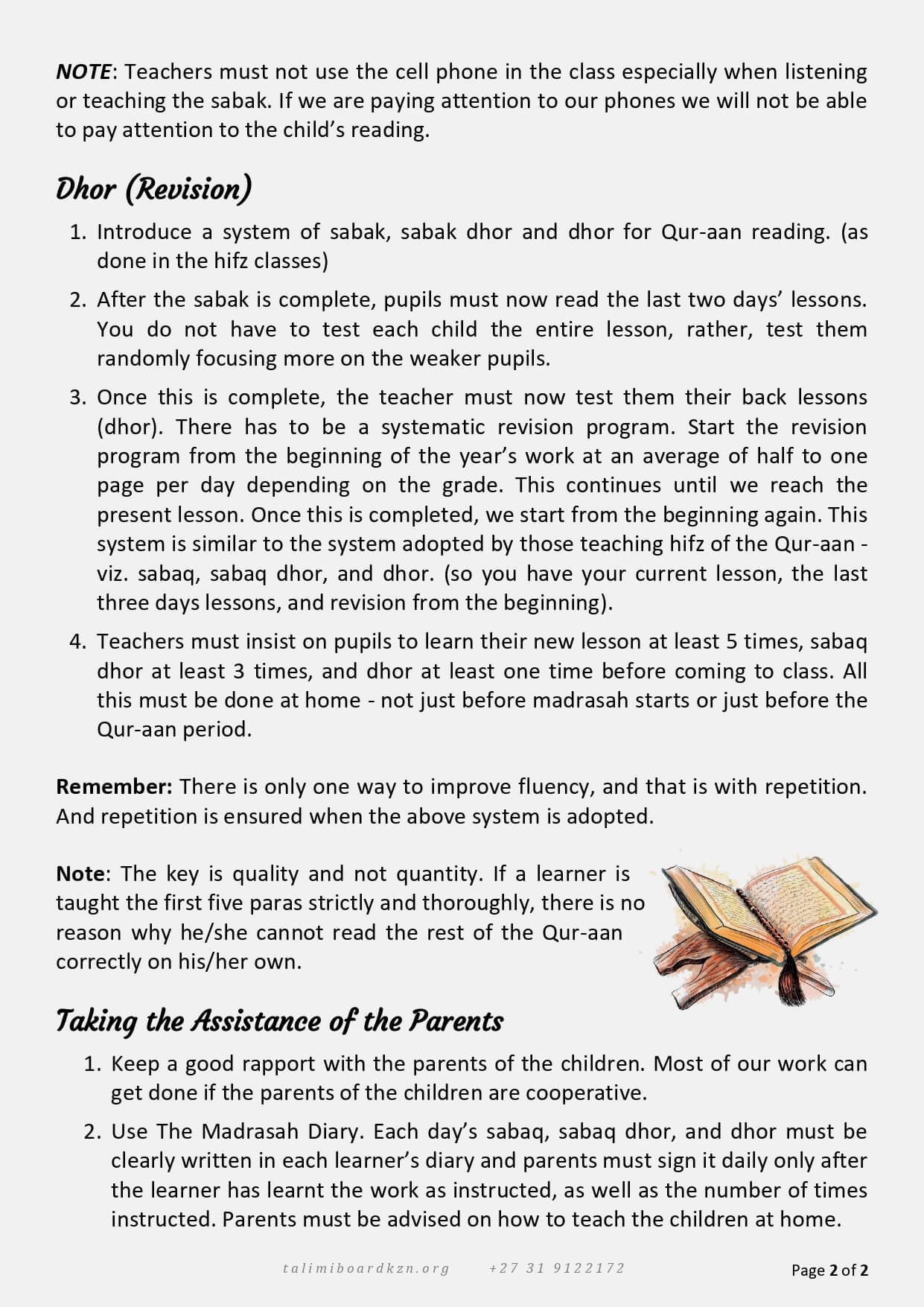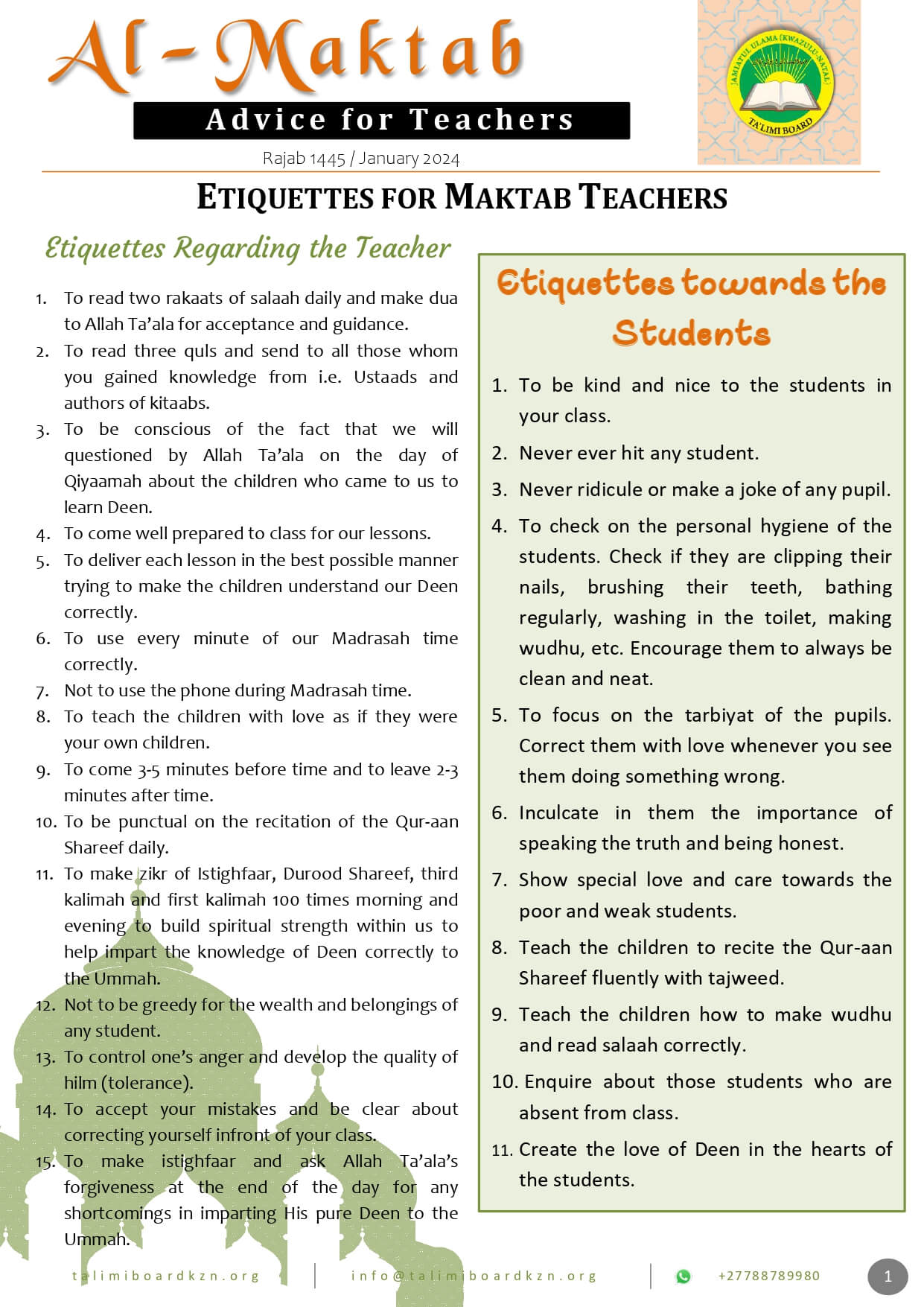THE MAKTAB
The maktab system, throughout the annals of history, has proven to be one of the most vital means of preserving our Deen. Wherever a maktab was established, Deen-e-Islam remained in that area. The basic knowledge of Islam is learnt at this primary Madrasah. Today, whatever Deen we have is mainly because of what we learnt in the maktab. Therefore, we should strive to ensure that this system continues to flourish till the day of Qiyaamah. Every locality should establish a maktab and show the greatest importance, to it for verily this is the foundation of Islam. All other works of Deen will rest on this foundation. It has been noticed, in those areas where no maktab system exists, very quickly Muslims lose their identity and even leave the fold of Islam, Allah forbid.
THE SYLLABUS
To run a maktab efficiently, it is imperative to have a proper syllabi and curriculum in place. This helps in developing the children into good practicing Muslims. Over the years many organisations have developed good, notable kitaabs which has helped children learn the basics of Islam. These books need to be reviewed regularly to ensure that children are adequately equipped to combat the challenges they face in life.
THE IMPORTANCE OF SUPERVISION
After establishing the maktab, it is necessary that the maktab be supervised by a group of learned Ulama to ensure that a good level of ta’leem is maintained. The supervision team will be able to assist teachers in improving their teaching methods and uplifting the level of ta’leem at the maktab. Internally, the principal of the maktab should also go from class to class inspecting the quality of education imparted. This helps to maintain a high standard of ta’leem at our makaatib.
IMPROVING ON QUR-AAN READING
By and large, the Qur-aan reading in our makaatib need serious attention. We have to try to improve the standard of Tajweed, pronunciation and fluency of Qur-aan reading. Qur-aan sabaks must be repeated several times daily to perfect the reading of the children. Asaatizah should create a passion within themselves to become excellent Qur-aan teachers.
PRACTICALS AND SUNNATS
Islam is a practical way of life. Nabi Muhammad (sallallahu alayhi wasallam) taught Deen practically to the Sahaabah (radiyallahu anhum). More important than the theory, is the practical method of doing the Ibaadaat. Wudhu, Ghusal, Salaah, Aadaab of the toilet, Aadaab of eating, drinking, wearing clothes, etc. are things that a Muslim does every day of his life. If the pupils perfect these aadaab they will be able to continue their daily lives in accordance to the Sunnah. Asaatizah must take the pupils to the toilet, wudhu khana and the masjid to practically show them the practical method of doing these Ibaadaat.
AQEEDAH
The most important aspect of the maktab is to correct the Aqeedah and beliefs of the pupils. Imaani Mujmal and Imaani Mufassal is taught to them from Grade 0. These aspects have to be ingrained into them with the hope that they will live and die as Muslims. The lessons of tauheed, Risaalat and Ma-aad (belief in the hereafter) should regularly be taught to them. Pupils attending Christian Schools are bombarded with beliefs of Christ and the cross. They come into contact with priests who attempt to snatch away their Imaan. Theories of Evolution and the big bang is part of the school syllabus. Pupils are made to write assignments on this subject. At times one-third of the exam paper discusses questions on evolution compelling pupils to write answers in conflict with our Aqeedah. LGBTQ drives take place in all public schools where pupils are counselled in this regard. Most children feel that there is nothing wrong in being gay or lesbian. At the maktab these beliefs need to be properly taught to the children so that their Imaan is not shattered in any way.
TARBIYAT OF THE PUPILS
Together with ta’leem, tarbiyat is of utmost importance. Asaatizah should always be checking the behaviour and mannerisms of the students. Whatever is taught at the maktab must be implemented in their lives. Always check the dressing of the students, their manners, the way they speak and conduct themselves. It is the duty of the Ustaaz to ensure that the students are performing their five daily salaah and fasting in the month of Ramadhaan. This is part of the tarbiyat of the students.
CLASSES FOR HIGH SCHOOL STUDENTS (BOYS AND GIRLS)
This is extremely necessary. Most children leave maktab after Grade 7. We should try and have a class for them twice a week or at least once a week. Do not make the classes too difficult for them. Have a light program for them with no examinations. As far as possible encourage them to come to the Masjid for Salaah. A similar class should be held for girls. Saturday mornings may be a good idea to have the classes for the high school girls. If the boys cannot attend the maktab, have the class for them on a week day after Maghrib or after Esha depending on the season.
THE PARENTS
Keep regular contact with the parents of the children. This will help tremendously in the ta’leem of our children. The Ulama should conduct house visits and encourage parents to teach their children at home. This will also give us an idea of the home background of these pupils and how we should interact with them at Madrasah. Females can phone the mothers and encourage them to teach their children. The message book or diary could be used to correspond with parents and explain what work needs to be done.
KEEPING IN CONTACT WITH YOUR EX-STUDENTS
The Asaatizah of the Madrasah should try and maintain a ta’lluq with the ex-students of the maktab. Regularly, keep in contact with them. Visit them or at least phone them from time to time. Arrange youth programs with some activities and braai perhaps to draw them back to the madrasah. Once a year have an old boys / old girls program at the maktab and invite all the ex-students. Keep their phone numbers/e-mail addresses and regularly send articles/bayaans/clips to them.
CONCLUSION
The maktab is the life blood of our community. Every effort must be made to raise the standard of our makaatib. The preservation of the maktab system is in actual fact the preservation of Deen. All our Akaabir supported this service of Deen and encouraged that it must be established in every town and village. May Allah Ta’ala accept us all for the service and the khidmat of His Deen and may Allah Ta’ala be pleased with us. Aameen.
>>>Download Article Poster<<<
